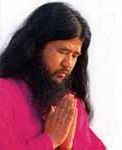![]()
![]()
![]()

Aum Shinri-kyo and Related Controversies
(BBC World News, January 19, 1999)
Dr Massimo Introvigne is Managing Director of CESNUR, the Center for Studies on New Religions in Torino, Italy. Dr Introvigne, good afternoon. Is Aum changing his heart?
"At least it is changing its name (into "Aleph"). I believe it is a question of survival. The move was unavoidable, for three main reasons. Firstly, Aum was feeling the pressure of two new Japanese laws aimed at curbing activities of groups found guilty of major crimes. Although the laws did not name names, it is clear that they targeted Aum. Secondly, Aum is generally discredited in Japan and almost unanimously feared by society at large. Thirdly, Aum is loosing members and is reduced to a few thousand true believers." So, is it a cynical move rather than a genuine change of heart? "It may well be both. It may be a move by certain leaders and a genuine change of heart by others, particularly by those who were never directly involved in criminal activities. Religious movements can reform. While I am certainly not comparing them to Aum, a case in point are the Children of God. They admitted (particularly within the framework of a UK court case) that instances of sexual abuse did happen in their past history, promised to reform, and the consensus of the scholars is that they indeed have reformed. One may willing to give even Aum a chance".
Does Aum have a future?
"It may survive, although probably only as one of the smaller Japanese new religions. The next few months will be crucial. A difficult passage will be when Asahara is sentenced, possibly to death. If the new Aum, or Aleph, will not protest it will disappoint some of the hard liners. If it does, it will outrage Japanese public opinion".
Do they still believe in an imminent doomsday or apocalypse, or Armageddon?
"I do not think that the problem with Aum was that they believed in an imminent end of the world. After all, hundreds of groups do believe in this, and only a handful become violent. The ideological problem with Aum was the justification of killing, or 'poa', the quite paradoxical doctrine that by killing people you may do them (to put it simply) a favour, you may free them from a bad reincarnation or from the wheel of reincarnation altogether. There are very different interpretations of Aum, for example by Robert Jay Lifton and Ian Reader. But they would agree that what Lifton calls the 'ideology of killing' was the most dangerous point. In his press conference yesterday the de facto leader of Aum, Mr. Fumihiro Joyu, emphatically renounced the doctrine of 'poa'. Time will tell whether he is telling the truth."
How much of a threat is the new Aum?
"I think that to some extent it is better for law enforcement to have to deal with a single organization than with individuals. Although many Japanese think that Aum should be disbanded, a disbanded Aum will leave the most fanatical believers as loose cannons, some of them tempted to exact retribution, particularly if Asahara is executed. A surviving national Aum organization will be much easier to watch than a number of small groups or bands." Dr Introvigne, that was very helpful. Thank you.
Back to the CESNUR Page on Aum Shinri-kyo and Related Controversies
CESNUR reproduces or quotes documents from the media and different sources on a number of religious issues. Unless otherwise indicated, the opinions expressed are those of the document's author(s), not of CESNUR or its directors
![]()
[Home Page] [Cos'è il CESNUR] [Biblioteca del CESNUR] [Testi e documenti] [Libri] [Convegni]
[Home Page] [About CESNUR] [CESNUR Library] [Texts & Documents] [Book Reviews] [Conferences]
![]()
Revised last: